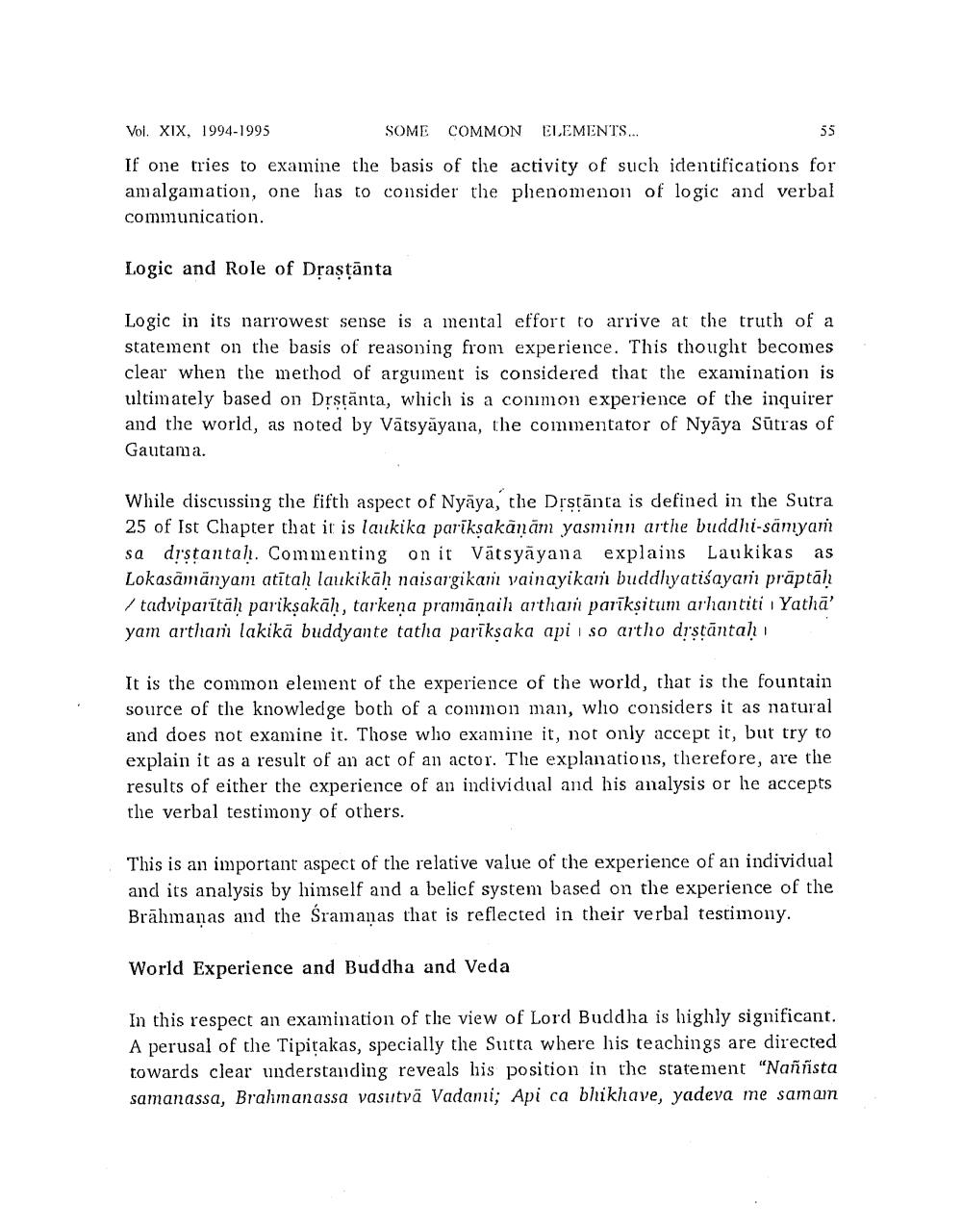________________
Vol. XIX, 1994-1995
SOME COMMON ELEMENTS...
55
If one tries to examine the basis of the activity of such identifications for amalgamation, one has to consider the phenomenon of logic and verbal communication.
Logic and Role of Drastanta
Logic in its narrowest sense is a mental effort to arrive at the truth of a statement on the basis of reasoning from experience. This thought becomes clear when the method of argument is considered that the examination is ultimately based on Dṛṣṭänta, which is a common experience of the inquirer and the world, as noted by Vatsyayana, the commentator of Nyaya Sutras of Gautama.
While discussing the fifth aspect of Nyaya, the Drstanta is defined in the Sutra 25 of Ist Chapter that it is laukika parikṣakāṇām yasminn arthe buddhi-samyam sa drstantah. Commenting on it Vätsyäyana explains Laukikas Lokasāmanyam atitaḥ laukikāḥ naisargikami vainayikam buddhyatiśayam prāptāḥ /tadviparitäh pariksakäḥ, tarkeṇa pramanaih artham pariksitum arhantiti Yatha' yam artham lakika buddyante tatha parikṣaka api so artho dṛṣṭāntaḥ
It is the common element of the experience of the world, that is the fountain. source of the knowledge both of a common man, who considers it as natural and does not examine it. Those who examine it, not only accept it, but try to explain it as a result of an act of an actor. The explanations, therefore, are the results of either the experience of an individual and his analysis or he accepts the verbal testimony of others.
This is an important aspect of the relative value of the experience of an individual and its analysis by himself and a belief system based on the experience of the Brahmanas and the Sramanas that is reflected in their verbal testimony.
World Experience and Buddha and Veda
In this respect an examination of the view of Lord Buddha is highly significant. A perusal of the Tipitakas, specially the Sutta where his teachings are directed. towards clear understanding reveals his position in the statement "Naññista samanassa, Brahmanassa vasutvā Vadami; Api ca bhikhave, yadeva me samam.




